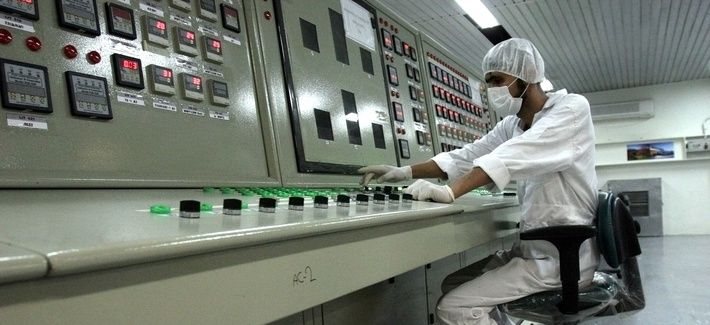A renewed campaign of covert network attacks is more likely to spur Tehran’s nuclear efforts than hinder them.
The Iran nuclear deal is increasingly at risk, with President Trump threatening to overrule his top national security advisers and defy the assessment of international monitors to declare Iran non-compliant with the agreement’s stipulations. The problem for the administration, however, is that no viable alternative is better than the Joint Comprehensive Plan of Action. If Trump rips up the JCPOA, the U.S. would forfeit the stringent limitations placed on Iran’s enrichment activities and the international community would lose the unprecedented transparency it now has on Iran’s nuclear program. Even more daunting, the United States would become isolated in its approach to Iran, opposed by Europe, Russia, China, and much of the rest of the world.
Perhaps a more realistic concern is the prospect that the administration will nominally uphold the deal, while engaging in aggressive covert action against Iran. Increasingly, when traditional military and diplomatic options appear too costly, states turn to cyber warfare. But a stepped-up cyber offensive against Iran is very unlikely to yield desirable results. Not only is it unlikely to be effective in its immediate objectives, but it risks antagonizing Iran into precisely the kinds of behavior the hawks want to forestall.










Comments are closed.